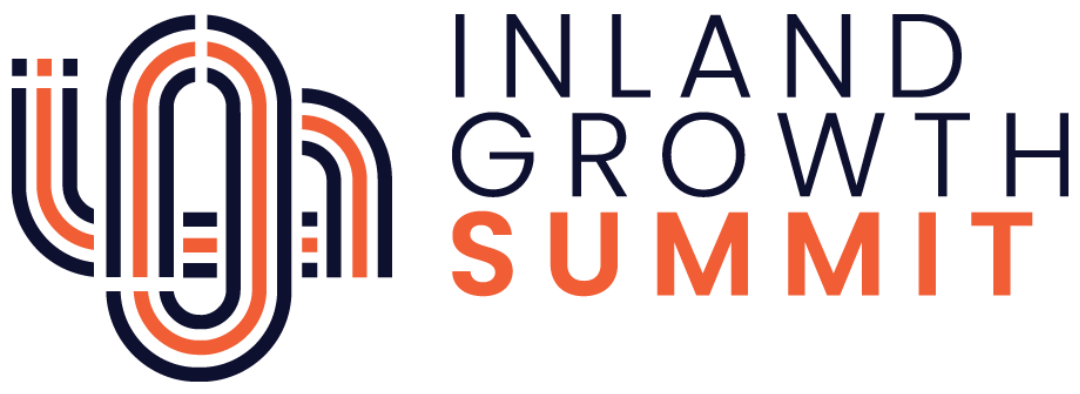Recap
Successful summit provides a spotlight on regional issues
An impressive line-up of speakers and panellists shared their thoughts and input on the future of regional NSW at the recent 2024 Inland Growth Summit.
More than 200 people travelled from across the state to attend the two-day event, which focused on the theme People and Place. The seventh summit of its kind, hosted by Regional Development Australia Orana (RDA Orana), covered topics including circular economics and sustainability, training and education, people and community, rural and remote health and tourism and hospitality.
You can experience the days anew by exploring our vibrant event photos from Day 1, the Summit Networking Dinner, and Day 2.
Day 1
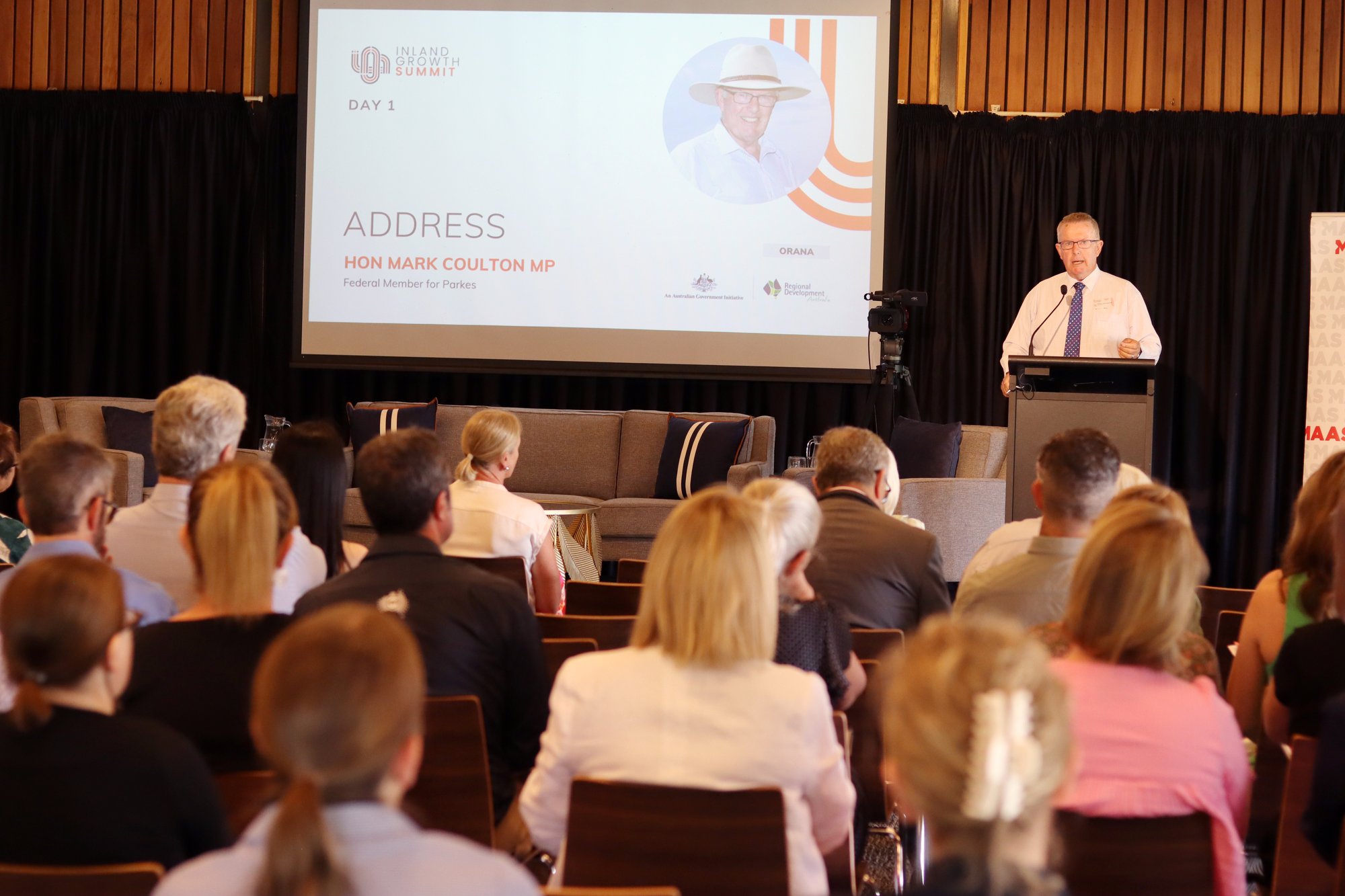
Official Opening
Federal Member for Parkes, the Hon Mark Coulton provided an overview of what's happening in the electorate and how he is working bipartisan with the government to achieve outcomes to ensure that our region is not forgotten. He highlighted the amazing work being achieved though Macquarie Homestay - its expansion and the dire need for facilities like it, to enable rural and remote patients to receive care close to home without having to travel to Sydney and incur exorbanate fees for accommodation.
He spoke about his frustration with inland rail and the lack of movement with the project which would change the lives of those living in inland Australia, stating that the project would connect the Orana region with the rest of Australia.
Mark also discussed the issues of skills shortages in the region and how migrant support could assist in alleviating vacancies in specialised industries.
“We are only at the start of great things. Metropolitan areas are backed up and it makes sense that people should come here. With telecommunications there are no barriers.
We need to celebrate who we are and be proud of who we are and encourage other people to take up the opportunities.”
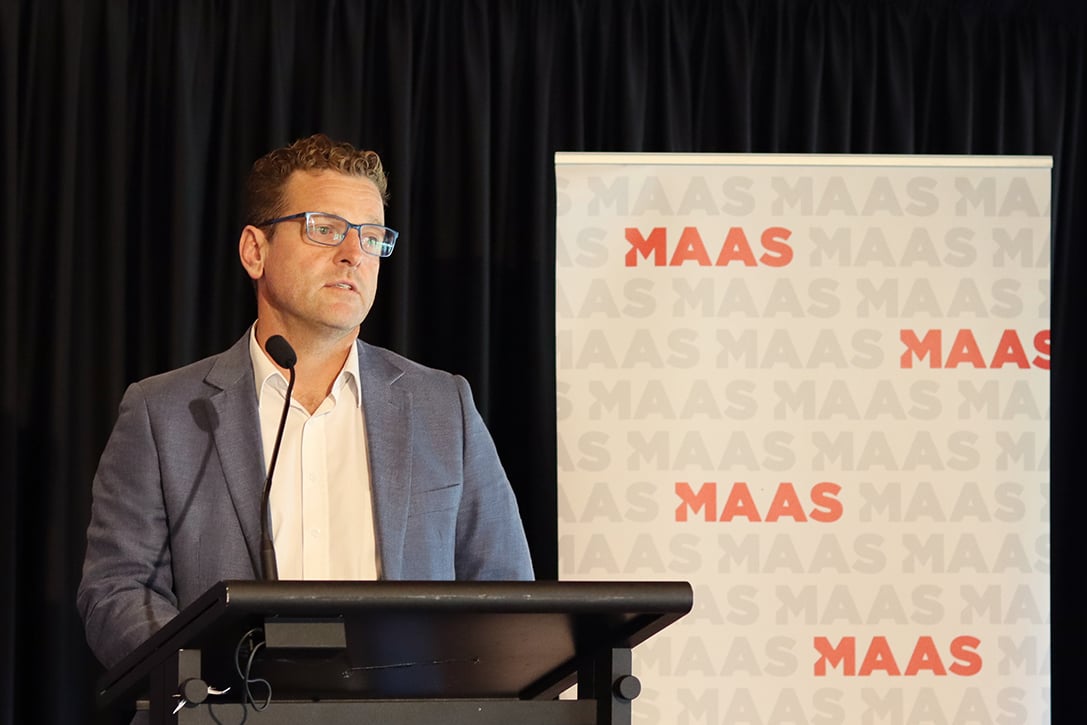
A Word from Our Major Sponsor
MAAS Group Holdings General Manager Planning and Projects, Steve Guy provided an insightful overview of the company and its plans for the future. He explained to the audience the company currently has a workforce of 1,900 and growing with 44 quarries in three states, 17 concrete plants and 8,000 residential properties.
He outlined their strategic drivers towards sustainability including the emerging trends in construction materials to repurpose waste and capturing carbon. Steve spoke about using recycled tyre oil for asphalt road base, trialling hydrogen on plant engines and investigating the use of solar.
He also outlined their dedication towards training and education and the community through their active involvement in employing rural and remote staff as well as offering skills based apprenticeships and building a regional workforce.
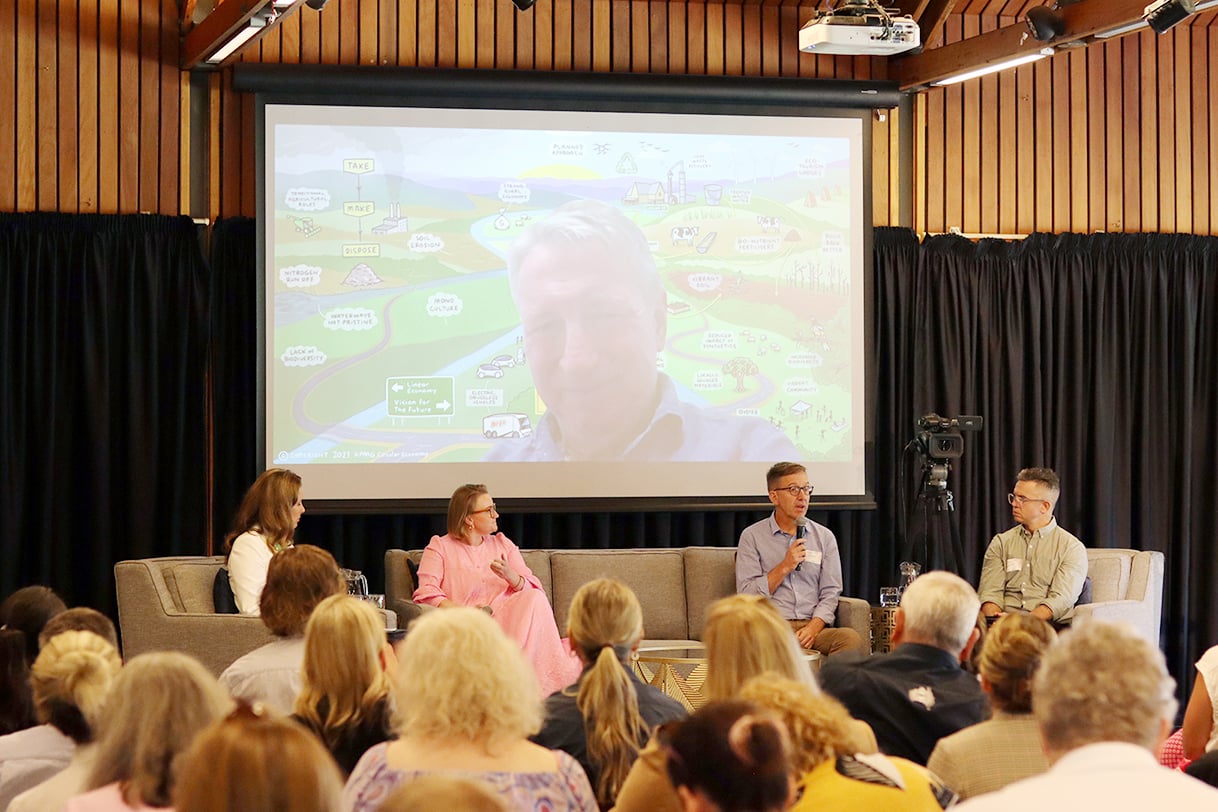
Session 1 - Circular and Sustainability
The first session was led by Circular PV Alliance, Co-founder Megan Jones as we heard from keynote speaker Bega Group Executive Chair, Barry Irvin. Barry described a utopian valley as an example for others to learn and achieve by. Barry engaged the audience with his story about starting a circular economy in the Bega Valley and how he hoped to implement his findings across Australia and the world. He explained that one of the most successful products the company owned and one of the oldest products was Vegemite - which is a waste product made from leftover brewers’ yeast.
Barry said the great beauty of circularity was that it required you to think about outcomes - social, environmental and economic and it's a process of continuous improvement. He outlined how the creation of the Bega Circular Valley Cooperative set in motion his vision to make the entire valley circular and through that momentum the construction of the national circularity centre - a $20M centre for circularity that will have an education space and will be an opportunity to show sustainability and circularity in its true form at work
Following Barry’s presentation the open session began with panellists:
- Charles Sturt University Gulbali Institute, Energy and Circularity Senior Research Fellow, Dr Simon Wright
- Yurruga Co-founder, Joe Williams
- See Saw Organic Wines, Alice Jarrett
Panel discussion included how circular economics was being invested in to promote sustainability in regional areas, the sustainability journey for See Saw Wines, the 'ngunggilanha' principle and the role of First Nations people in caring for Country and what other countries were doing to engage and support their communities in a transition to change.
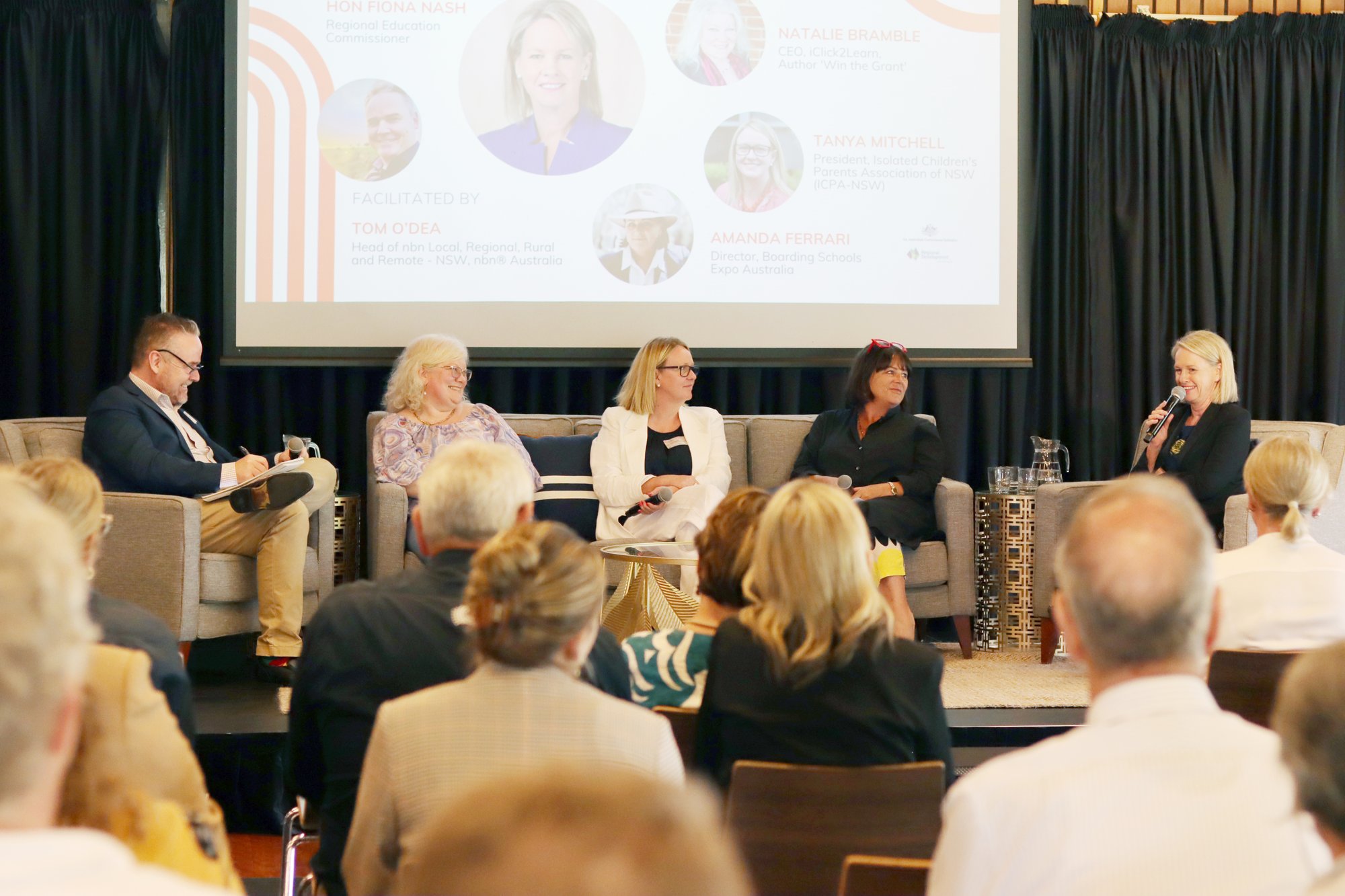
Session 2 - Training and Education
The training and education session was facilitated by NBN Co State Manager NSW, Tom O’Dea, who introduced keynote speaker Australian Government Regional Education Commissioner, Fiona Nash.
Fiona provided an overview of her role as Regional Education Commissioner which gives education a national focus of what’s important for people in regional, rural and remote Australia. The broad role covers early childhood, schools, vocational education and training, higher education with universities and links into the regional workforce. She said her role was to be an advocate for people living in rural, regional and remote communities when it comes to their educational needs and provide advice to the Federal Government on what she sees are going to be things that will improve the circumstances in education for rural, regional and remote people. Fiona explained the disparity between country and metropolitan students, which ranged from subject choices, the tyranny of distance, financial difficulties and social dislocation.
“These are challenges that sit with rural families and not with their metropolitan counterparts.”
She said it was important that the decision makers and politicians had the data and evidence needed to look at rural, regional and remote circumstances differently.
Following Fiona’s keynote address the open session began with panellists:
- iClick2Learn CEO and Co-founder, Natalie Bramble
- Isolated Children’s Parents’ Association (ICPA) NSW President, Tanya Mitchell
- Boarding Schools Expo Australia Director, Amanda Ferrari
Panel discussion delved into making the education system fair and equitable for rural, regional and remote communities, how access to early education and healthcare helps build stronger communities, growing a regional workforce and planning for the future through linkages with business, industry and education, the Commonwealth Regional Scholarships program and an uptrend in adult education and learning.
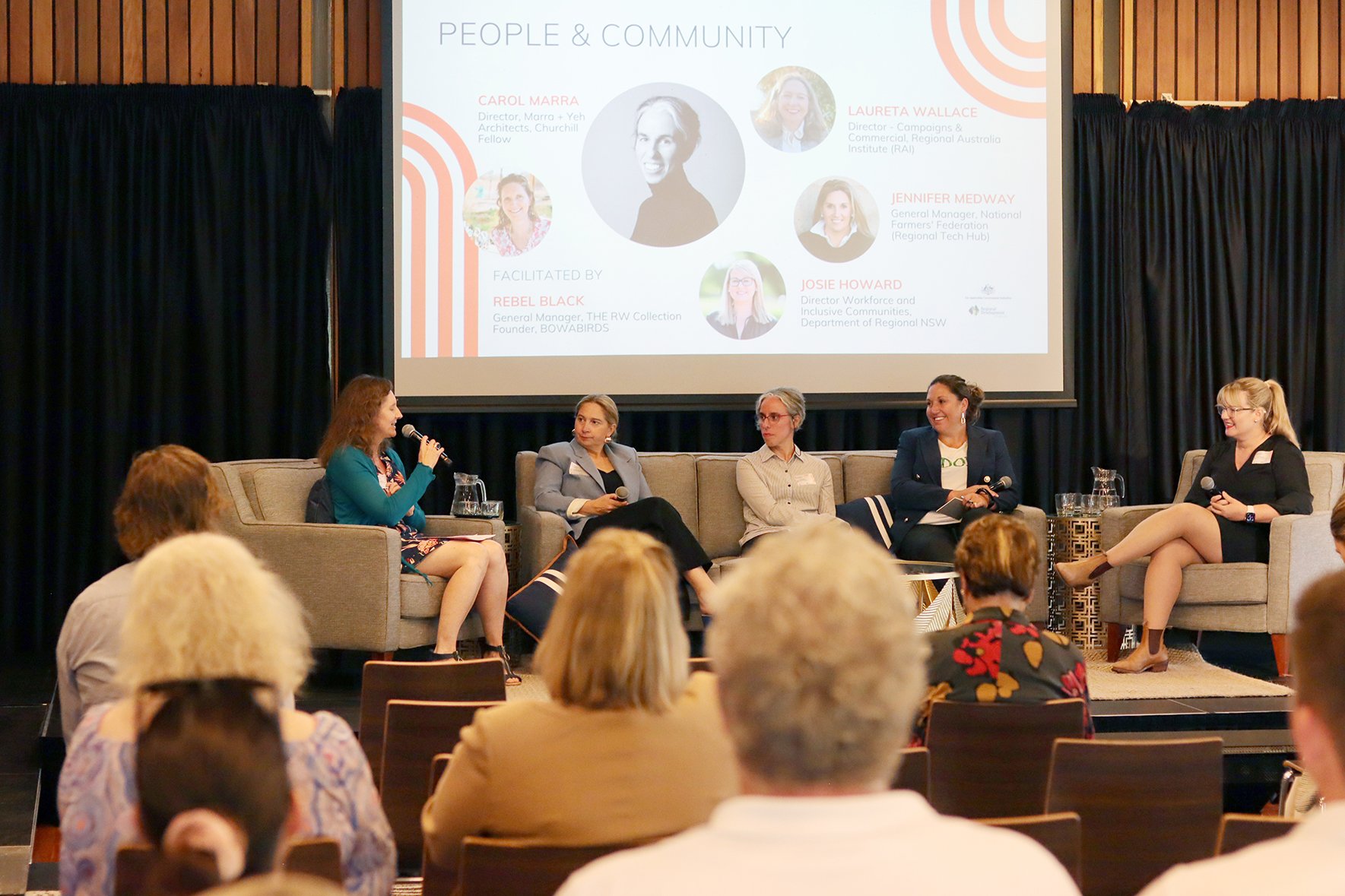
Session 3 - People and Community
The People and Community session was facilitated by Entrepreneur and Human Agronomist, Rebel Black, who is the CEO and founder of the THE RW Collection - a global business which she operates with support of a remote team from her office on the opal fields in Lightning Ridge. Rebel introduced keynote speaker, Marra + Yeh Director, Carol Marra.
Carol is one of Australia’s pre-eminent sustainability and climate change-ready architects with a global reputation for her research, leadership and innovative design approach. She outlined her work in sustainable places, how to design for climate change, regional housing strategies and building in the bush. Carol detailed her work in Borneo building off the grid micro communities in the jungle explaining the importance of financial, natural and social capital. Carol then gave an overview of the work being done at the North West Precinct Community in Dubbo.
The precinct consists of 375 hectares and is being developed using the 17 United Nations Sustainable Development Goals. She detailed how the masterplan for the development considered housing diversity and how it was placed throughout the development. Carol explained that if you purchased a small lot, knowing you wouldn’t have a big backyard - that a park would be close by - that it would be designed to cater to the needs of the development. The development was designed by housing diversity, so that each area would complement the other and diversity was distributed around the masterplan.
Following Carol’s keynote address the open session began with panellists:
- Regional Australia Institute Director - Campaigns and Commercial, Laureta Wallace
- National Farmers' Federation - Regional Tech Hub General Manager, Jen Medway
- Department of Regional NSW Director Workforce and Inclusive Communities, Josie Howard
The panel discussed issues around initiatives that are providing opportunities to live, work and invest in regional Australia, the incentives being offered and programs developed to reduce essential worker shortages in regional NSW, how regional connectivity is developing and creating greater access to opportunities and how placed based development in regional communities is changing the landscape by making it more sustainable and inclusive.

Day 2
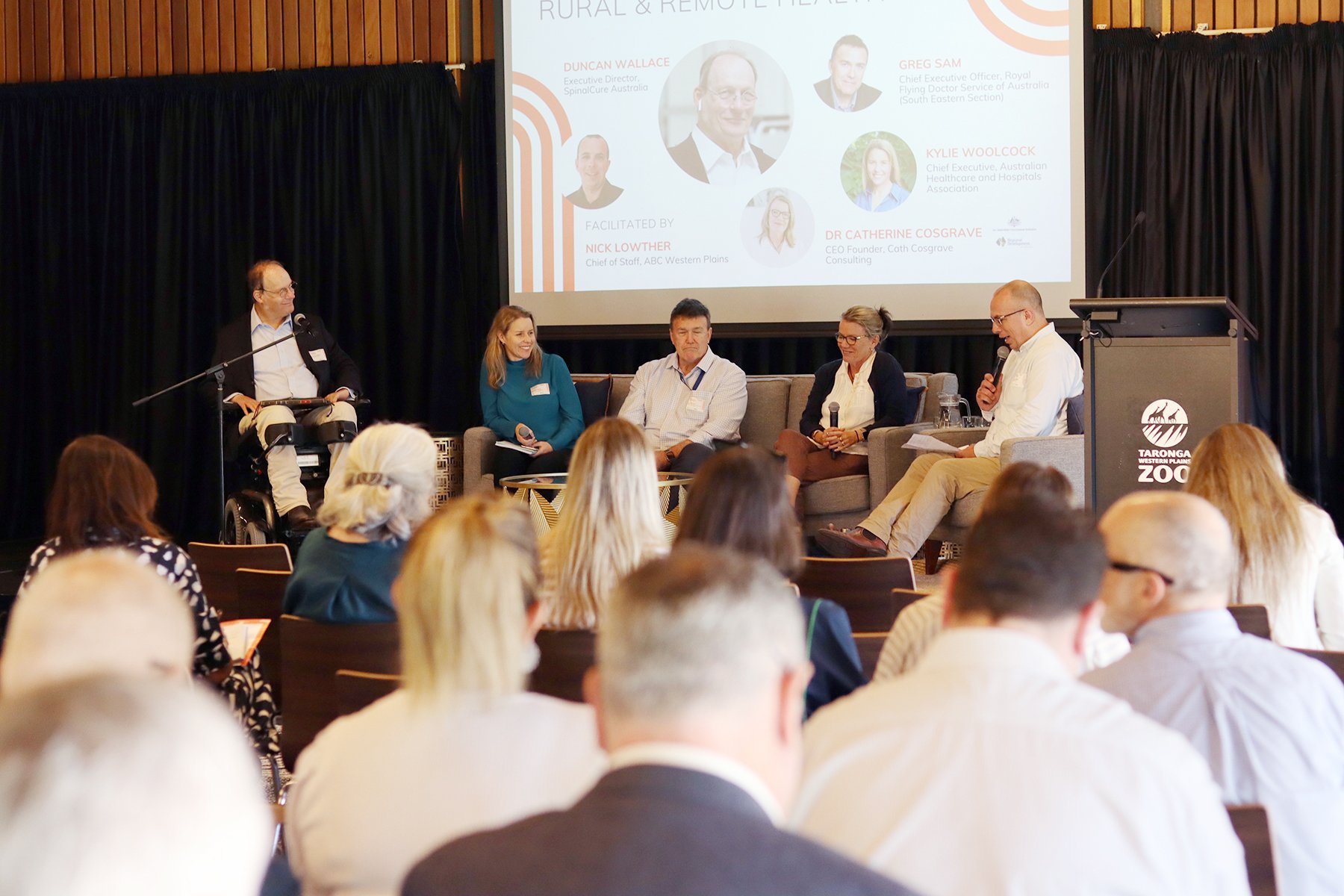
Session 4 - Rural and Remote Health
Master of Ceremonies, Jen Cowley introduced the keynote speaker for the rural and remote health session, SpinalCure Australia Executive Director, Duncan Wallace who shared the heartbreaking story of his journey with spinal injury and how through scientific breakthroughs a cure was a very believable goal. Duncan explained the tragedy that people living in remote and rural areas, per capita, were twice as likely to be injured with a spinal injury than those in the cities and have less access to the top of the line treatments. Through their work at SpinalCure they are taking the ‘un’ off the unbelievable, through a program called Project Spark.
The project involves several different clinical trials that are proving successful and will aim to change the lives of people living with spinal cord injuries. Duncan explained that applying carefully tailored currents of electricity to the spinal cord, below the level of injury, could wake it up (similar to a hearing aid for the spinal cord), to enable messages from the brain to the spinal cord to be heard. While not a cure it could be life changing for many. He outlined other clinical trials underway and how SpinalCure was working to make it more accessible for residents living in rural and remote Australia to participate in these trials.
Following Dunan’s keynote address, session facilitator ABC Western Plains Chief of Staff, Nick Lowther introduced the panel which included:
- Australian Healthcare and Hospitals Association Chief Executive, Kylie Woolcock
- Royal Flying Doctor Service of Australia (South Eastern Section) Chief Executive Officer, Greg Sam
- Cath Cosgrave Consulting CEO and founder, Dr Cath Cosgrave
The panel discussion focused on challenges in the healthcare system, how it was changing and what needed to change to meet the needs of regional, rural and remote communities, if it’s possible to retain healthcare professionals, value based healthcare, the disparities between metropolitan and regional systems, how RFDS has changed over time and become a lifeline to some communities and the impacts of having a disability in the bush and the benefit of NDIS.
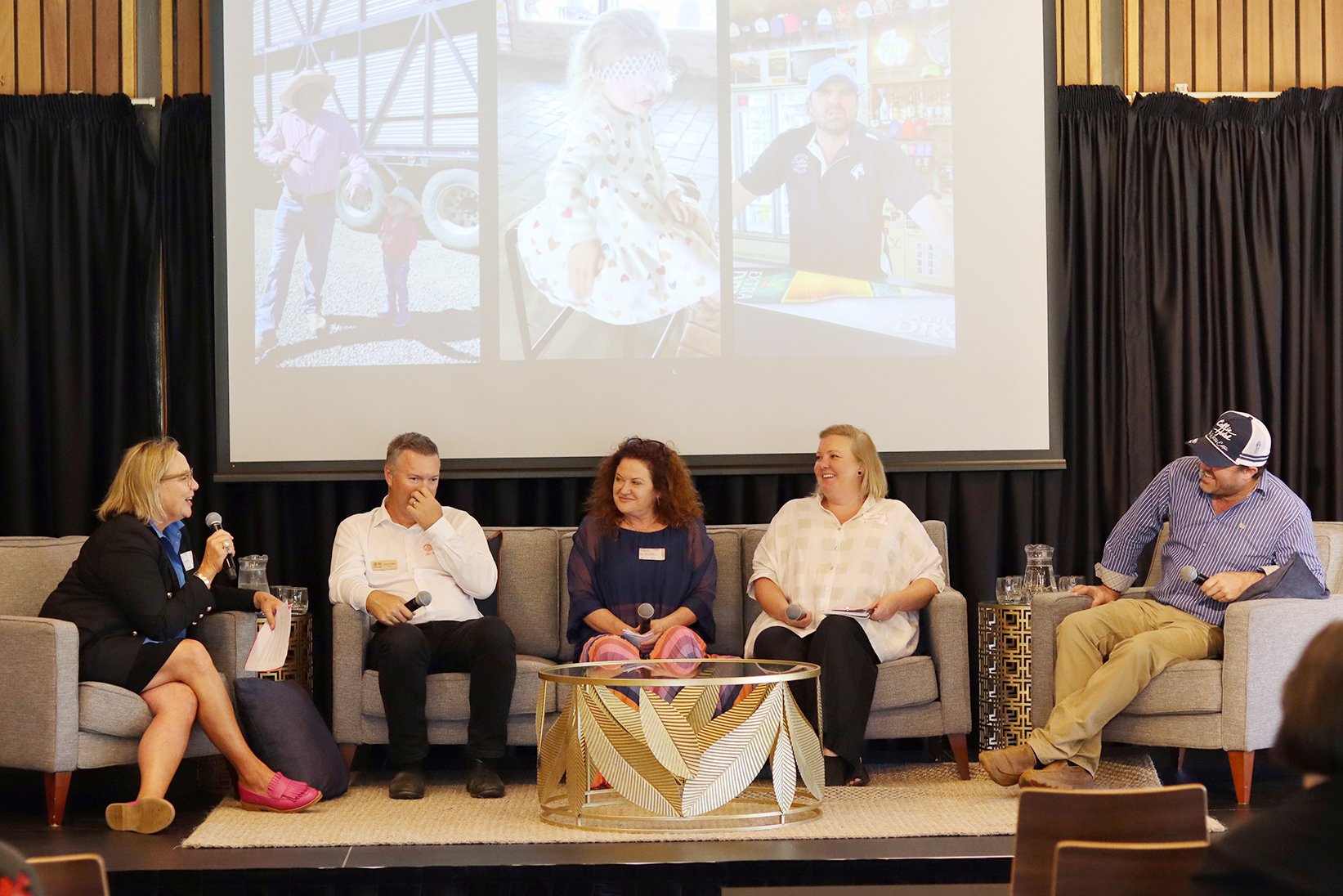
Session 5 - Tourism and Hospitality
Master of Ceremonies, Jen Cowley, introduced the final session facilitator, RDA Orana CEO Justine Campbell, and our keynote speaker for the event, Taronga Western Plains Zoo Director Steve Hinks. who outlined an amazing vision for the future of the iconic Dubbo tourist attraction. Steve explained how during the Covid downtime he came up with an expansion plan for the attraction that would make Dubbo the number one family holiday destination in Australia. His idea became a reality after gaining funding for the multimillion dollar expansion, titled Project Serengeti.
The project will be the single largest investment project in the NSW regional tourism industry and includes a 55 hectare multi species space, 22 cabins and a wildlife resort encompassing a new restaurant, bar, cafe and 300 seat function centre /event space. Steve explained the importance of researching target markets and how planning specifically to those markets was a key to success. He also spoke about the benefit of collaboration with industry peers and partners to build your audience and grow your customer base.
Following Steve’s keynote presentation, the facilitator for the session, our own RDA Orana CEO, Jusitne Campbell, who has a history in regional tourism, took the stage to introduce the tourism and hospitality panel session, which included:
- Oriana Retro Hotel and Resort General Manager, Kellie Ferguson
- Callubri Station Owner, Angela Armstrong
- Collie Hotel, Tom Hancock
The panel spoke about how to enhance the visitor experience and have tourists come back and stay for longer, the benefits of a social media presence and how it can bolster your brand and make you a destination, what commodity based agritourism is and why it’s a growth area, what the keys to success are to becoming a NSW Tourism Award winner, the struggle with accessing the international tourist market and the importance of collaboration within regions.
The day ended with a successful speed networking session where panellists and attendees exchanged ideas and explored potential collaborations.

